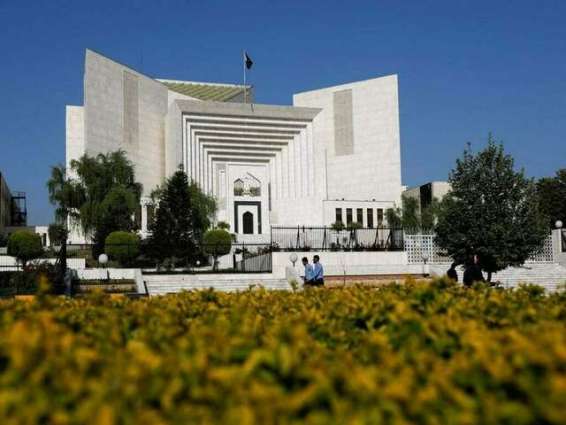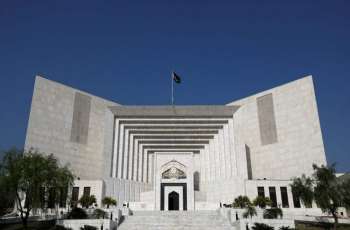The bill passed by the joint house of the parliament says that a three-member bench consisting of the CJP and the two senior-most judges of the apex court will decide whether or not to use the suo motu powers about any matter.
SLAMABAD: (UrduPoint/Pakistan Point News-April 12th, 2023) Attaullah Tarar, Special Assistant to the Prime Minister on Interior and PML-N leader, has criticised the Supreme Court's decision to fix the hearing of a bill before a "like-minded" bench, stating that "fixing a law that has not been enforced yet for hearing before a like-minded bench at a lightning speed is an insult to parliament".
Fawad Chaudhry, a PTI leader, responded him by tweeting that those who believed a larger bench would solve problems would be pleased with the current arrangement.
The bill was approved by the Federal cabinet on March 28 and passed by the National Assembly a day later, after some amendments suggested by the Standing Committee on Law and Justice. On March 30, it was passed by the Senate and then referred to the president for his approval.
However, the president returned the bill, stating that it was a "colourable legislation". In his reply, which he posted on Twitter, the president said that he thought it fit and proper to return the bill, in accordance with the Constitution, with "the request for reconsideration in order to meet the scrutiny about its validity (if assailed in the court of law)". He underlined that Article 191 of the Constitution empowered the SC "to make rules regulating the practice and procedure of the Court".
Prime Minister Shehbaz Sharif called the president's move "most unfortunate" and accused him of acting as a worker of the PTI. He said that the president was more beholden to Imran Niazi than the Constitution and the demands of his office.
The bill in question is the Supreme Court (Practices and Procedures) Bill 2023. It was passed by parliament’s joint session on Monday, with several amendments. The Constitution stipulates that the bill will be sent to the president for his assent. If he does not sign it within ten days, assent will be deemed to have been granted.
Under the new legislation, a three-member bench comprising the CJP and the two most senior judges of the apex court will decide whether or not to take up a matter suo motu. Previously, this was the sole prerogative of the CJP.
The law also states that every cause, matter, or appeal before the apex court would be heard and disposed of by a bench constituted by a committee comprising the chief justice and the two most senior judges. The legislation includes the right to file an appeal within 30 days of the judgment in a suo motu case, and any case involving constitutional interpretation will not have a bench of fewer than five judges.
The bill also provides for former prime minister Nawaz Sharif and other parliamentarians disqualified by the Supreme Court under suo motu powers (such as Jahangir Tareen) to appeal their disqualification within 30 days of the law's enactment.




